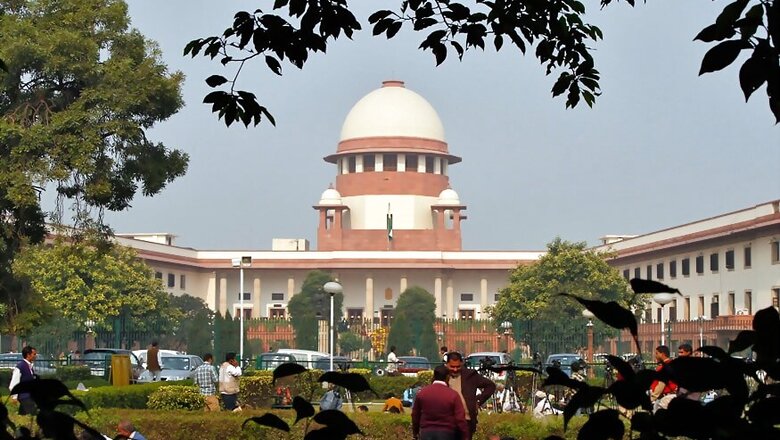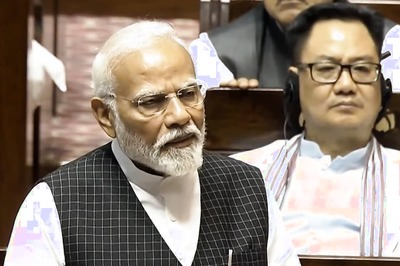
views
New Delhi: Emphasising that “unchecked auditing bodies can adversely affect the economy of the country,” the Supreme Court on Friday urged the Central government to put in place an oversight mechanism for auditing firms and also consider framing a law to regulate the profession.
A bench of Justices ALK Goel and Uday U Lalit was convinced that “the accounting firms could not be left to self-regulate themselves” and that “a separate oversight body for auditing work and updating existing legal framework appear to be necessary.”
The Court asked the Central government to constitute within two months an expert committee to thoroughly examine the issues pertaining to “violation of RBI, FDI policies and the CA Act by secret arrangements”.
This committee should submit its report within three months and the government could then take remedial measures.
“Safeguards in the society and economy of the country in the process are of paramount importance... needless to say that absence of adequate oversight mechanism has the potential of infringing public interest and rule of law. The auditing profession requires proper oversight and such oversight mechanism needs to be revisited from time to time,” maintained the Court.
It further pointed out that “auditing business is required to be separated from the consultancy business to ensure independence of auditors.”
The Court order came as it heard a PIL, argued by advocate Prashant Bhushan, alleging malpractices by leading MNC auditor PricewaterhouseCoopers (PwC). The petition accused PwC and its network firms of infusing foreign money in violation of the FDI norms, engaging in illegal accounting insurance policies and irregularity in an intra-network acquisition of another auditing firm.
While PwC refuted all these allegations, the Court maintained that “a case is made out for examination not only by ED and further examination by the ICAI but also by the Central Government having regard to the issues of violation of RBI/FDI policies and the CA Act by secret arrangements.”
It gave the Enforcement Directorate three months to complete the pending investigation about the receipts from the foreign firm between 2008 and 2011and its implications, while asking the Institute of Chartered Accountants of India (ICAI) to take necessary steps for upholding ethics and values of the profession instead of citing its limitations based on technicalities.
The bench said that “the investigation so far carried out cannot be held to be complete in all respects” and that having regard to the statutory framework under the CA Act, current FDI Policy and the RBI Circulars, “it may prima facie appear that there is violation of statutory provisions and policy framework effective enforcement of which has to be ensured.”
Citing the high-powered committee report on Operation of Multinational Network Accounting Firms (MAFs) in India, the Court found force in the argument that there is a compliance by MAFs only in form and not in substance.
“By having got registered partnership firms with the Indian partners, the real beneficiaries of transacting the business of chartered accountancy remain the companies of the foreign entities. The partnership firms are merely a face to defy the law. The principle of lifting the corporate veil has to apply when the law is sought to be circumvented. In expanding horizons of modern jurisprudence, it is certainly permissible,” it said.
About the foreign remittances in the PwC case, the bench noted it could be termed as investment even though the remittances are claimed to be interest-free loans to partners.
“The amount could also be for taking over an Indian chartered accountancy firm. Relationship of partnership firms, though having Indian partners, operating under a common brand name from same infrastructure, with foreign entity is not ruled out. It is not possible to rule out violation of FDI policies, FEMA Regulations and the CA Act. Thus, appropriate action may have to be taken in pending proceedings or initiated at appropriate forum,” it held.

















Comments
0 comment